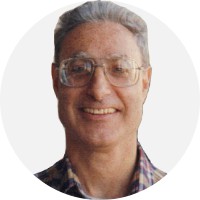The views expressed in our content reflect individual perspectives and do not represent the authoritative views of the Baha'i Faith.
When I was 11 years old, I saw the movie, “The Ten Commandments.” I was so inspired by it, I started reading the Book of Exodus in the Bible.
I quickly learned that in the Old Testament the words “Me” “My” and “Mine” had capital “M’s” when they referred to God. For example, the first commandment: “Thou shalt have no other gods before Me.”
As a Jewish boy, I somehow knew in my heart that the God who the Bible described was speaking to me through His messenger, Moses. As I read those words in the old Hebrew Bible, I could feel the divine power flowing from the words of Moses. I knew, in my heart and soul, that Moses was a manifestation, an appearance, a messenger of God. Through him I could dimly sense the overwhelming majesty of the Creator, and the feeling stuck with me into adulthood.
Biblical scholars call that experience a theophany—which means God manifesting Himself and His Word through a human messenger. In the Bible—and in The Ten Commandments film—we get lots of physical symbols for that theophany. The Earth trembles, storms rage, even the mountains shake. When God reveals the Ten Commandments to Moses, He does so in the midst of lightning, thunder and pouring rain. Those dramatic natural events and the awe-inspiring language used to describe them give us a mental and spiritual picture of the importance of that powerful revelation.
When I began investigating the Baha’i Faith, I first read a small book of spiritual aphorisms by Baha’u’llah called The Hidden Words. I immediately recognized its voice, but it overwhelmed me for several reasons. The words “Me” “My” and “Mine” had capital “M’s” referring to God. There were many verses where Baha’u’llah, speaking in the voice of God, said, “I created thee.” The language was so exalted, so majestic and so beautiful.
It was obvious to me that no human being writes like this. No human being would ever use the words “Me” “My” and “Mine” to refer to God. No human being would ever say “I created thee.” No human being, no matter how well educated and experienced, can write with such exaltation and majesty.
Upon finishing the book, I accepted Baha’u’llah as God’s messenger for this new age, and as the most recent manifestation of God’s theophany, come to establish the kingdom of God on Earth.
I did not declare my belief in Baha’u’llah until later, but I had no doubt whatsoever that Baha’u’llah is who he claimed to be. I knew immediately, in my heart, that God was speaking to me through Baha’u’llah, just as He had done through Moses.
Here are three quotations from this book that exemplify what I’ve described above:
O Son of Man! Veiled in My immemorial being and in the ancient eternity of My essence, I knew My love for thee; therefore I created thee, have engraved on thee Mine image and revealed to thee My beauty. – Baha’u’llah, The Hidden Words, p. 4.
O Son of Being! Thou art My lamp and My light is in thee. Get thou from it thy radiance and seek none other than Me. For I have created thee rich and have bountifully shed My favor upon thee. – Ibid., p. 6.
O Son of Spirit! I created thee rich, why dost thou bring thyself down to poverty? Noble I made thee, wherewith dost thou abase thyself? Out of the essence of knowledge I gave thee being, why seekest thou enlightenment from anyone beside Me? Out of the clay of love I molded thee, how dost thou busy thyself with another? Turn thy sight unto thyself, that thou mayest find Me standing within thee, mighty, powerful and self-subsisting. – Ibid., pp. 6-7.
When you recognize the voice of a prophet of God, you do so at a much deeper level than mere intellectual recognition—you recognize that voice in your inmost heart and soul.
















Comments
Sign in or create an account
Continue with Googleor